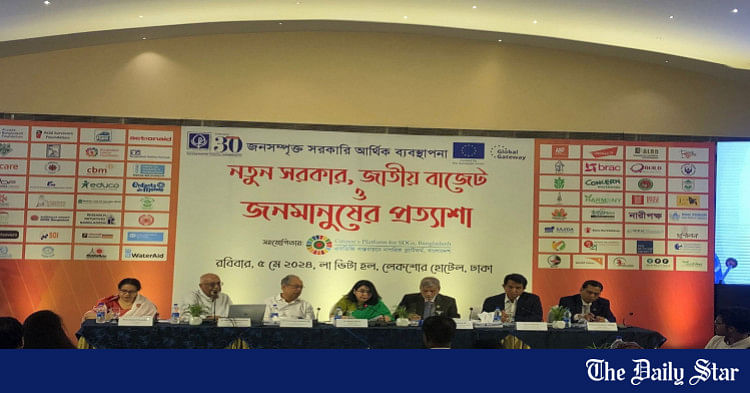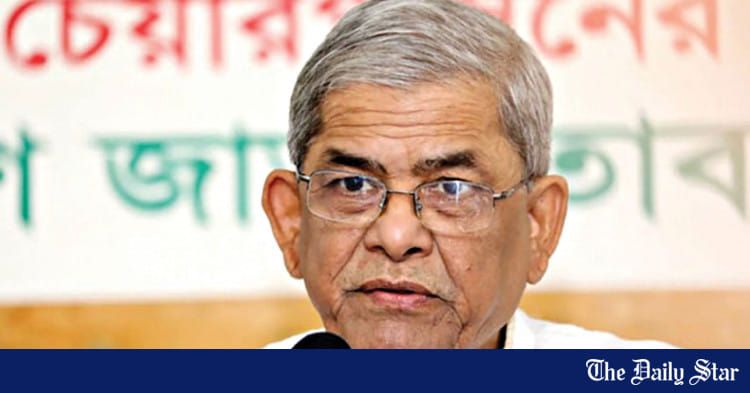












Bangladesh is grappling with severe economic challenges in the wake of Sheikh Hasina's regime. Current inflation rates hover around 10%, while approximately 18 million youth are facing unemployment [9623ca41]. This economic turmoil is exacerbated by a staggering annual illicit outflow of $6 billion and an alarming $17 billion siphoned from banks, as revealed by economist Ahsan Mansur [9623ca41]. The World Bank has projected that GDP growth will slow to 4% in 2024-25, reflecting the deep-rooted structural issues that need urgent attention [9623ca41].
In addition to these challenges, remittances have reached $21.9 billion in 2023, accounting for 10% of the country's GDP, highlighting the reliance on external financial support amidst local economic struggles [9623ca41]. Bangladesh's failure to meet the conditions of a $4.7 billion loan from the International Monetary Fund (IMF) further complicates the situation, as the country has struggled with targets on foreign currency reserves and tax collection [4b03ceb2]. This has led to a decline in credit ratings and heightened concerns about economic health [4b03ceb2].
Recent analysis indicates that Bangladesh has fallen into the middle-income trap since the fiscal year 2013-14, as noted by Dr. Zahid Hussain, a member of a white paper committee. Key indicators such as stagnant productivity and employment highlight this issue [8cfca3b5]. The World Bank surveys suggest that countries typically hit this trap at a per capita income of $8,000, which Bangladesh has yet to reach, having graduated to low middle-income status only in 2015 [8cfca3b5]. Economic indicators like investment and the tax-GDP ratio have stagnated, and reforms since the 1990s have been minimal post-2004, contributing to structural stagnancy [8cfca3b5].
According to Abdul Bayes, a recent analysis highlights that middle-income countries (MICs) like Bangladesh represent a significant portion of the global population and face structural stasis, inefficient capital use, and shrinking economic spaces. Only 34 MICs have transitioned to high-income status in the last 34 years, indicating the difficulty of escaping this trap [0c593d9a]. Bayes emphasizes that to overcome these challenges, countries must undergo two critical transitions: investment and innovation. Recommendations include improving the investment climate, enhancing education, and rewarding merit [0c593d9a].
At the Annual BIDS Conference on Development (ABCD) 2024 in Dhaka, Indermit S Gill, chief economist of the World Bank Group, emphasized the need for Bangladesh to adopt a more open economy to escape the middle-income trap. He highlighted the importance of transitioning between investment, infusion, and innovation, and stressed the necessity of socio-economic mobility to address rising inequality [f3cc6760]. Gill criticized the country's narrow focus on energy sources and called for greater efficiency in energy conversion to reduce carbon emissions, aligning with the conference theme of 'Interconnectedness: Equality, Opportunity, Freedom and Dignity' [f3cc6760].
In a significant policy shift, Finance Adviser Dr. Salehuddin Ahmed announced on January 6, 2025, that the Bangladeshi government will cease subsidies and cheap financing for businesses, aiming for a competitive economy. He emphasized the need for reforms before the interim government's exit within 1.5 to 2 years [97e2db07]. Dr. Ahmed criticized the Ready-Made Garment (RMG) sector for still seeking incentives despite its long establishment, but reassured that major global brands like GAP and H&M will remain in Bangladesh, with development partners committing US$ 1.6 billion and expecting an additional US$ 700 million [97e2db07].
On January 26, 2025, during a seminar in Dhaka, Salehuddin Ahmed reiterated the urgent need for economic reforms, stating that they should take precedence over other reforms. He pointed out challenges posed by procedural laws and the slow implementation of the Bangladesh National Single Window project initiated in 2017. He called for improved efficiency in tax collection and transparency in business operations, addressing public criticism regarding rising commodity prices while encouraging recognition of the government's achievements [41ad1c06].
In a recent development, USAID signed a $202 million development agreement with Bangladesh on September 15, 2024, as part of a broader commitment of $954 million in grants from 2021-2026. This agreement emphasizes the urgent need for reforms in governance, revenue mobilization, and anti-money laundering, while also focusing on social spending for health and education [377d2322]. Current foreign exchange reserves stand at $24.30 billion, but the trade deficit reached over $22 billion in FY2023-24, indicating significant economic pressures [377d2322].
The government is also reviewing LDC graduation timelines and aims to improve bilateral trade with Saudi Arabia, which accounts for 36% of Bangladesh's overseas employment and is a major source of remittances [97e2db07]. Foreign Adviser Touhid Hossain highlighted the importance of skill development for workers heading to Saudi Arabia, while Saudi Ambassador Essa Yousef Alduhailan reaffirmed Saudi Arabia's support for Bangladesh's development [97e2db07].
Various indicators reflect the challenges Bangladesh is currently experiencing, including high food inflation, falling exports and remittances, and low private sector credit growth and imports [6ff2e241]. The World Bank and the IMF have revised down their growth forecasts for Bangladesh, citing concerns over rising oil prices, inflationary pressure, and supply side constraints [6ff2e241]. Despite consecutive good harvests and some positive measures taken by the government, such as infrastructure development, structural reforms are necessary to address fiscal vulnerabilities and ensure long-term economic stability [6ff2e241].
The economy in Bangladesh is also plagued by corruption and ineffective government policies, leading to looting from banking and other sectors, growing inequality, rising inflation, and a shortage of dollars [c4e5e9b1]. Economist Selim Jahan critiques the Awami League (AL) government's economic policies for favoring the affluent, resulting in increased inequalities. He highlights that economic discipline was often violated, leading to widespread corruption [74d667d8]. Jahan proposes a five-point strategy for the interim government to address these issues, including engaging marginalized groups and prioritizing growth in sectors employing the poor [74d667d8].
Persistent inflation, a snowballing debt burden, and slow economic growth are the three challenges facing Bangladesh, according to Debapriya Bhattacharya, a distinguished fellow at the Centre for Policy Dialogue (CPD) [1b6862fa]. He noted that while Bangladesh has never defaulted on debt payment, around $5 billion in debt remains unpaid in the energy sector. Furthermore, slow economic growth is reducing the government's fiscal space for spending [1b6862fa].
Despite GDP growth from $35 billion in 1991 to approximately $447 billion in 2023, with a reduction in the poverty rate from 58% in 1990 to 19% in 2023, 31 million people still live in poverty, and income disparity has reached historic highs, with the top 10% controlling 38% of national income [74d667d8].
In a broader context, the concept of the 'middle-income trap' was introduced by Indermit Gill and Homi Kharas in 2007, and a 2013 World Bank study found that only 13 out of 101 middle-income economies escaped the trap from 1960 to 2008. The World Bank identified 34 economies that achieved high-income status between 1990 and 2022, including Chile, Uruguay, Poland, Romania, Saudi Arabia, and Oman [4bfb0637]. The high-income threshold was lowered to a GNI of $13,845 per capita, emphasizing the need for countries like Bangladesh to adapt their economic strategies [4bfb0637]. Malaysia's GDP per capita was $12,570 in 2023, but its PPP-adjusted income was only 45.5% of U.S. levels, indicating the importance of considering purchasing power parity (PPP) for a more accurate measure of living standards [4bfb0637].
Djibouti is facing socio-economic distress due to factors such as low investment, high cost of goods and services, slow internet, and poor governance. The country serves as a hub for arms trafficking, gold smuggling, and illicit drug trade. Djibouti also faces issues of corruption, human trafficking, and exploitation of wildlife. The government's nationalization of key economic assets, including the port and free trade zone, has led to legal disputes with DP World. Despite its strategic importance, international organizations and powerful nations have largely ignored Djibouti's suffering [edfbf6c8].